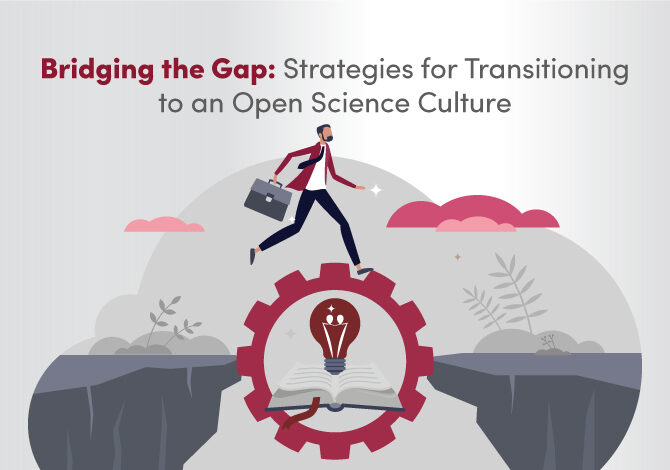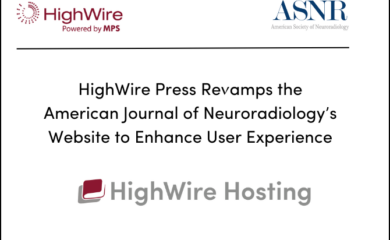Tony Alves, SVP of Product Management, and Joshua Routh, Product Director, recently attended the Researcher to Reader (R2R) Conference at the historic BMA House in London. Designed to bring together researchers, publishers, librarians, and other professionals in the scholarly information industry, the conference fosters dialogue on the evolving landscape of research communication. The general sessions covered a wide range of pressing topics, from research integrity and peer review innovations to open science and metadata standardization. However, the heart of the conference lies in its workshops—interactive sessions that allow participants to deeply engage with specific challenges and collaborate on shared visions and practical solutions. This is the third of four blog posts exploring key discussions and takeaways from the R2R 2025 conference, highlighting insights that are shaping the future of scholarly publishing.
At this year’s Researcher to Reader (R2R) Conference, one session, “Strategies for Transition to an Open Science Culture: What Works, What Doesn’t”, took a deep dive into the barriers and opportunities in implementing open science practices. This blog post explores the discussion led by moderator Graham Smith (Springer Nature) and panelists Riana Bahl (King’s College London), Dr. Mark Hahnel (Digital Science), and Dr. Beth Montague-Hellen (Francis Crick Institute), highlighting insights on open data, policy implementation, and the future of open science.
The Cost of Closed Science
One of the most striking points made during the session was the economic and scientific cost of poor open data practices. Dr. Mark Hahnel presented alarming figures, including a €10.2 billion annual loss to the European economy due to a lack of adherence to FAIR data principles (Findable, Accessible, Interoperable, Reusable). In the United States, the impact is equally concerning, with $28 billion lost annually due to irreproducible biological research.
Beyond financial costs, the lack of open data transparency is also leading to a crisis in research integrity. A 75%+ failure rate in pharma’s replication of peer-reviewed studies raises significant questions about reliability. The session pointed out that misconduct-related retractions of biomedical papers have been steadily rising since 2000, often due to issues such as falsification, plagiarism, and unreliable data. This evidence underscores the urgent need for open data initiatives that enhance transparency, reproducibility, and public trust in research.
The Challenges of Implementing Open Science
While open science policies exist, their implementation remains a significant challenge. Dr. Beth Montague-Hellen outlined a common problem: while funders and institutions mandate open data policies, researchers often do not read, remember, or prioritize them. The policies, in many cases, become administrative checkboxes rather than actionable guidelines.
She emphasized that researchers need clear guidance from institutions, journals, and funders on practical aspects of data sharing:
- Where should the data be deposited?
- When should researchers share their data?
- How should they ensure compliance with best practices?
The session highlighted a successful model: UKRI-funded research in the UK, where compliance rates increased due to proactive enforcement and support systems. However, policy enforcement varies significantly across disciplines and countries. A global comparison of dataset linkages in the CZI corpus revealed that some regions lag behind due to infrastructure limitations and lack of researcher incentives.
What Motivates Researchers to Share Data?
A critical point discussed was the disconnect between policy mandates and researcher motivation. While funders may require open data, the panelists noted that citation benefits are a far stronger incentive. Dr. Hahnel presented data showing that:
- In Japan, 34.43% of researchers are motivated by citations.
- In Ethiopia, 21.14% see citation advantages as the primary reason for sharing data.
- In the US, 9.98% cite citations as a motivator.
This suggests that recognition in the academic ecosystem is a more effective driver of open science adoption than mandates alone. Professional incentives—such as increasing citation impact, tenure considerations, and awards for best data practices—should be expanded to encourage voluntary compliance.
A Researcher’s Perspective: Awareness Gaps in Open Science
One of the most eye-opening moments in the session came from Riana Bahl, a biomedical science graduate at King’s College London, who admitted she had never heard of open science or FAIR data principles before engaging in this discussion. Her experience reflects a wider problem in scientific education—open science is not yet integrated into standard research training.
Many researchers do not receive formal education on data sharing best practices. As a result, even when researchers are willing to share their data, they may struggle with technical aspects like formatting, repository selection, and metadata requirements. A global survey revealed that familiarity with FAIR principles varies across different regions, emphasizing the need for more education and awareness-building efforts.
Bahl’s testimony reinforced a key message: open science should not be an afterthought—it should be embedded into research culture from the beginning of a researcher’s career.
Future Directions: How to Drive Open Science Adoption
The panelists agreed that simplifying open science processes and reducing the administrative burden on researchers is critical. Dr. Hahnel proposed that publishers could take a more active role by:
- Guiding researchers on where to deposit data, rather than leaving them to navigate multiple repositories alone.
- Providing copyediting services for datasets, ensuring that submitted data meets standards without creating extra work for researchers.
Another key takeaway was the potential for innovation in peer review to make data sharing more cost-effective. If peer review models begin incorporating data validation as part of the publishing process, researchers may be more likely to engage in proper data management practices.
Additionally, funders and institutions need to recognize the workload that data sharing imposes on researchers. The panelists stressed that simplifying compliance structures and integrating automated metadata tools can help remove barriers and increase participation.
Conclusion: Moving Beyond Policies to a Cultural Shift
The session highlighted a crucial reality: the transition to open science is not just a technical problem, but a cultural one. While policies exist, their enforcement and researcher engagement remain inconsistent. To drive meaningful change, stakeholders across the scholarly ecosystem must work together to:
- Educate researchers early—integrate open science training into university curricula and research training programs.
- Create professional incentives—reward data sharing with citations, recognition, and career benefits.
- Streamline compliance—simplify and automate metadata and repository selection to reduce administrative burdens.
- Encourage publisher involvement—publishers should play a more active role in ensuring that data is properly formatted and accessible.
Looking ahead, a successful transition to open science requires more than just policy mandates—it demands a fundamental shift in research culture. The session concluded with a call for collaboration between institutions, funders, publishers, and researchers to ensure that open science becomes the default, rather than the exception.
With continued efforts in education, infrastructure, and incentives, the vision of a truly open, transparent, and reproducible research ecosystem can become a reality.





